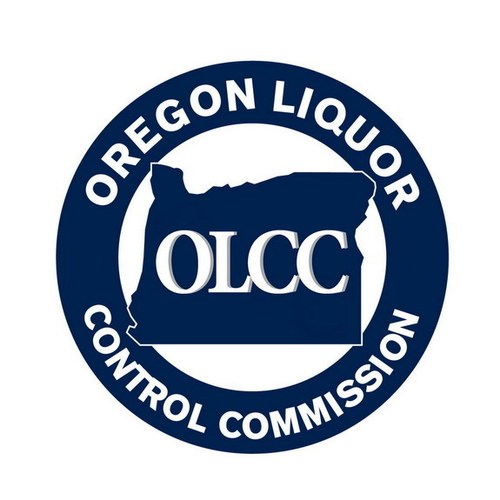The cannabis marketplace is an ever changing one. The opportunities being generated in the UK space are immense. Yet despite the countless benefits cannabis can bring to the economy, patient care and supporting health and wellness for consumers, an image problem continues to persist.
Despite its expansive growth, there is still a lot of uncertainty and misinformation. Having worked with several cannabis businesses in recent years, I firmly believe there are a myriad of ways in which the industry can benefit from PR support. A strong PR strategy can not only drive media coverage, but help to reach customers, shorten sale cycles, bolster brand reputation and drive change within political and regulatory circles.
Whether you are a flourishing cannabis brand, a start-up or ancillary cannabis business, PR can help you stand out from the competition and become a credible voice in this competitive market.
Here are some key ways in which cannabis businesses can profit from PR:
Campaigning for progress
Each category of the cannabis sector faces its own reputational challenges. Medical cannabis is perhaps the most significant of these, yet it still goes largely misunderstood by the general public. This, along with regulatory restrictions and a lack of education in the clinical community means cannabis stigma continues to exist.
For the thousands of patients suffering with the likes of multiple sclerosis and epilepsy, still struggling to access this fully legal drug, this is a tragic, pressing issue. There are several families and individuals across the UK who campaign for medical cannabis access to be improved, by leveraging their story via the press and lobbying Parliament. Some of these high-profile families have been supported through strategic communications at The PHA Group, most notably Hannah Deacon, the mother who successfully campaigned for the first NHS cannabis license for her son, as well as the parents of toddler Charlie Hughes, who are currently seeking Judicial Review against NICE.
Both cases offer strong proof of the powerful role PR can play in supporting those in need of medical cannabis. Through speaking to media and generating coverage of the stories of both families, the complex issue of medical cannabis access has been thrust into the public eye, this in turn putting fresh pressure on the Government to address this through much-needed change. For cannabis leaders and professionals looking to invest in PR, it is critical that your PR partner understands the key issues, culture and complexities of the industry to create credible stories and campaigns to gain cut through in the media.
Reputation enhancement
CBD is the most established sector of the UK cannabis industry, having become firmly attached to the lifestyle scene in recent years with its broad spectrum of health and wellness products. With approximately 7.3 million people in the UK using CBD products each year through a market already worth an estimated £300 million, the industry is predicted to grow at a rapid rate, with experts claiming this figure will more than triple in the next five years.

Despite its impressive growth, the industry has faced its own stumbling blocks. Until this year, CBD had been in a period of regulatory uncertainty and the industry faced understandable criticism when high profile cannabis probes found over half of the most popular CBD oils did not contain the amount of CBD promised on the label. This did nothing to help the already precarious public perception of CBD in the UK, meaning firms have had to work extremely hard to heal their reputations and ensure their brands are deemed trustworthy by consumers going forward.
With hundreds of brands claiming to be the best option, establishing credibility and becoming a trusted voice is key. Educating your audience by positioning company experts will help to keep your audience up to speed on the most current information and allow your brand to achieve an authoritative voice within the cannabis space.
Amplifying awareness
Driving awareness drives revenue. It doesn’t matter if your story and products are revolutionary if nobody knows they exist! PR can help build a narrative which conveys the purpose of your business, along with its vision and products, whilst promoting key insights to keep your company relevant. The power of public relations in this regard is very similar to that of positive word-of-mouth.
Strategic brand building
 Cannabis companies can’t advertise like mainstream companies, so they must tread carefully in the marketing of their products. However, there are great possibilities within PR. Through case studies and careful product placement, PRs can work carefully with CBD companies to raise awareness of the benefits of their products and solidify their brand image, without risking trouble with the ASA. With CBD brands and manufacturers springing up left and right, there are opportunities aplenty for PR firms to lend support, whether that’s from a consumer perspective, across food and drink, beauty or general wellness, or from a strategic business view.
Cannabis companies can’t advertise like mainstream companies, so they must tread carefully in the marketing of their products. However, there are great possibilities within PR. Through case studies and careful product placement, PRs can work carefully with CBD companies to raise awareness of the benefits of their products and solidify their brand image, without risking trouble with the ASA. With CBD brands and manufacturers springing up left and right, there are opportunities aplenty for PR firms to lend support, whether that’s from a consumer perspective, across food and drink, beauty or general wellness, or from a strategic business view.
Stories sell. It’s vital for a brand that wants to develop a sustainable, long-term plan to build a story which resonates with its audience. Strategic PR can therefore increase brand value and coupled with a digital marketing and social media strategy, boost engagement and elevate the profile of the business.
A wealth of opportunities
The legal cannabis industry is gaining traction and is one to watch. In relation to medical cannabis, the industry has called for change to improve patient access and pressure has been exerted on the government and regulatory bodies to normalise cannabis as an effective treatment for a myriad of health conditions In parallel, the CBD sector is only set to grow and in recent years, there has been increasing interest and investment into hemp, a versatile variety of the cannabis plant hailed as the next big thing in sustainability.
Cannabis is a commonplace yet spectacularly complex plant. It therefore needs a PR strategy which can uncover key angles and opportunities across a multitude of avenues to position brands within the space for success and growth.
Whilst there is still much to learn and navigate in cannabis, PR has an important role to play in changing attitudes as the industry continues to expand and evolve. I am excited to see where it goes next.





































